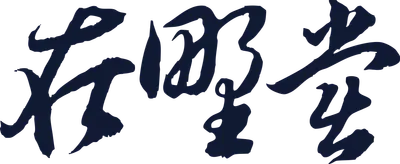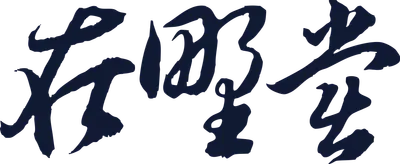作者:胡丽莉 责任编辑:罗志飞
“和谐社会”这个词汇,在中国官方的语境中代表政治正确。然而正是这句口号,掩盖了无数绝望的哭喊,粉饰着暴力与冷漠。它不是社会理想,而是一种政治麻醉,一种对国民的精神阉割!
今天的中国并不和谐,连“稳定”也只是权力虚构的假象。所谓“和谐”,不过是政权维稳机器下被迫安静的沉默,是压制批评、扼杀表达之后的僵死空气。
当孩子流血躺在地上,路人只顾躲避;当女子被拖行羞辱,周围人集体失语;当快递员倒下死去,全世界都视而不见——这不是巧合,而是体制驯化出的冷漠本能;这不是个案,是一声声‘和谐社会’下的泣血嘶吼!
这样的现状正是执政者精心布设的困局:让人民不再相信他人,不再关心社会,只埋头顾自己。集体冷漠不是道德沦丧、世风日下,而是政权用洗脑、审查和惩罚机制制造出来的“社会病态”。
飞速的城市化浪潮和一刻也不停歇的生活节奏固然加剧了人际疏离,但更严重的是体制制造的不信任。公权力肆意妄为却无法追责,底层民众维权无门;贫富差距扩大,阶层上升通道被堵死;官媒歌颂稳定,民间却满是沉默与绝望。在这样一个社会里,“不参与、不表达、不出头”成了默认的生存法则。
什么叫“寻衅滋事”?发个微博,讲句真话,拍个视频。你以为你在表达权利?不,你在挑战“稳定”。政权眼中,稳定的定义是:人民闭嘴,真相闭眼,社会闭耳。异见者被定罪为“寻衅滋事”,真相被处理成“个别事件”。“和谐社会”成了扼杀正义、转移矛盾的遮羞布。
请记住,冷漠从来不是人的本性,而是极权制度的副产品。当一个社会把所有善意都视为威胁,把每一次共情都当作不安定因素时,它就已经丧失了基本的道德土壤。它的“和谐”,不过是静默的绝望,是发不出声音的痛苦。
今天,我们必须再问一句:谁在用“和谐”掩盖矛盾?谁在用“稳定”粉饰暴力?谁在用“制度”压住民众的呐喊?答案再清楚不过:是垄断权力、操控真相、压制民意的——中国共产党!
中国若真想迈向和谐,就必须迈出历史性的一步:结束一党专政,终结信息封锁,还权于民,重建一个真正属于人民的制度。
只有拆除这个谎言构筑的秩序,才有可能建立一个真实的、有血有肉的社会——那里,每个人都能说话、能表达、能得到援助,不再生活在冷漠中,不再害怕关心别人。
只有打破专政,冷漠才会退场,和谐才不再是谎言。
Apathy Is Not Moral Decay — It Is the Reflex of Obedience Under Tyranny
By Hu Lili Chief Editor: Luo Zhifei Translator: Lu Huiwen
The phrase “harmonious society,” in the Chinese government’s narrative, represents political correctness. But in reality, this slogan has been used to muffle countless cries of despair and to whitewash violence and apathy. It is not a vision of social harmony, but a form of political anesthesia—a spiritual castration of the people.
China today is anything but harmonious. Even “stability” is a manufactured illusion conjured by the state’s iron grip. What the regime calls “harmony” is in fact a forced, suffocating silence—an airless atmosphere created by suppressing criticism and choking free expression.
When a child lies bleeding on the ground and bystanders merely look away; when a woman is dragged and humiliated in broad daylight and the crowd says nothing; when a delivery worker collapses and dies on the street while the world walks past without blinking—these are not coincidences. They are the conditioned reflexes of a society trained into apathy. These are not isolated events—they are blood-soaked screams buried beneath the regime’s propaganda of “harmony.”
This chilling social reality is not the product of moral decline, but the calculated result of authoritarian engineering: a society where people no longer trust one another, no longer care about the world beyond themselves. This is not just alienation—it is a regime-designed pathology, forged through brainwashing, censorship, and fear-based punishment.
Yes, rapid urbanization and the relentless pace of life have widened social gaps—but the deeper problem is institutional distrust. Government power is exercised arbitrarily and never held accountable. Ordinary citizens have no avenue for redress. Inequality widens. Social mobility is blocked. The state media sings hymns of “stability,” while silence and despair fester in the streets. In such an environment, “Don’t speak, don’t stand out, don’t get involved” becomes the unspoken rule of survival.
What is considered “picking quarrels and provoking trouble”?
Posting a tweet. Speaking a truth. Filming a video.
You think you’re exercising a right? No—you’re threatening “stability.”
To the regime, stability means: the people stay silent, the truth stays buried, and society stays deaf.
Dissenters are criminalized. Facts are reframed as “isolated incidents.”
The slogan of “a harmonious society” has become a fig leaf for injustice and a diversion from accountability.
Let us be clear: apathy is not human nature. It is the byproduct of authoritarian rule. When a society sees every act of kindness as a threat, every moment of empathy as a risk to “social order,” it has already lost its moral foundation. Its “harmony” is merely the silence of despair—the pain of a people who no longer know how to cry out.
So we must ask again:
Who uses the word “harmony” to mask suffering?
Who uses “stability” to justify violence?
Who uses “the system” to smother the people’s cries?
The answer is as plain as day:
It is the Chinese Communist Party—monopolizing power, manipulating truth, and crushing public will.
If China is ever to move toward genuine harmony, it must take a historic step:
End one-party rule.
End the blockade on information.
Return power to the people.
Rebuild a system that truly belongs to them.
Only by dismantling this lie-built order can we create a real society—a society with flesh and blood, where people can speak, express, and help each other without fear; where care is not punished, and compassion is not met with danger.
Only when dictatorship ends will apathy retreat.
Only then will “harmony” cease to be a lie and become a living reality.

